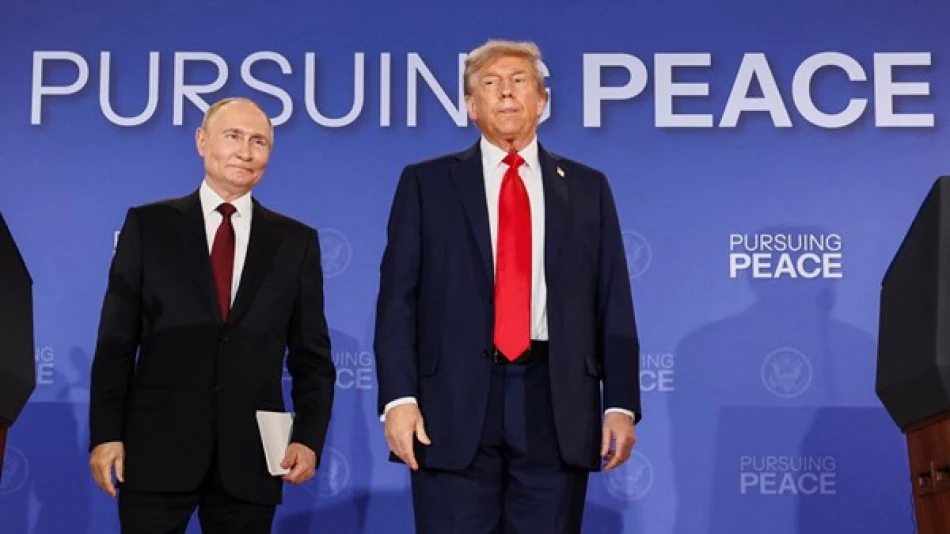
Putin Briefs Belarus and Kazakhstan on His Summit with Trump
Putin Briefs Allies on Trump Summit as Russia Signals Diplomatic Opening on Ukraine
Russian President Vladimir Putin conducted high-level consultations with the leaders of Belarus and Kazakhstan following his landmark meeting with U.S. President Donald Trump in Alaska, marking the first American-Russian summit in over four years. The Kremlin characterized the talks as a potentially significant step toward resolving the Ukraine conflict, with Putin emphasizing that both leaders discussed ending the crisis "on a just basis."
Regional Alliance Coordination Reveals Strategic Priorities
Putin's immediate outreach to Alexander Lukashenko of Belarus and Kassym-Jomart Tokayev of Kazakhstan underscores Russia's emphasis on maintaining unity within its sphere of influence during sensitive diplomatic negotiations. According to official statements, Putin provided detailed briefings on the Alaska summit's outcomes, suggesting Moscow views these allies as crucial stakeholders in any potential Ukraine settlement.
The Kazakhstan president's office noted that the Russian-American discussions "helped the American side better understand the Russian position toward Ukraine," indicating potential progress in bridging longstanding diplomatic gaps between Washington and Moscow.
First High-Level Dialogue Signals Potential Policy Shift
The Alaska meeting represents a dramatic departure from the diplomatic isolation that has characterized U.S.-Russia relations since 2020. Putin told senior Kremlin officials that the summit came at an opportune time and proved "extremely useful," emphasizing the rare opportunity for direct, high-level negotiations.
"We haven't conducted direct negotiations of this kind at this level for a long time," Putin remarked to Russian officials. "There was an opportunity to calmly and thoroughly clarify our position once again."
Focus on "Root Causes" Suggests Comprehensive Approach
Putin's emphasis on addressing the "root causes" of the Ukraine crisis indicates Russia may be seeking broader security guarantees and geopolitical arrangements beyond immediate battlefield considerations. This language typically signals Moscow's desire to revisit fundamental questions about NATO expansion and European security architecture.
Market and Geopolitical Implications
The diplomatic breakthrough could have significant implications for global energy markets, sanctions regimes, and regional stability. Russia's willingness to engage in substantive dialogue with the Trump administration suggests potential opportunities for economic normalization, which could affect everything from European gas supplies to agricultural exports from the Black Sea region.
For international investors, the talks represent the first concrete sign of potential de-escalation since the Ukraine conflict began, though any meaningful resolution would likely require complex negotiations involving multiple stakeholders beyond Washington and Moscow.
Cautious Optimism Amid Longstanding Divisions
Putin acknowledged the American administration's desire to "quickly end military operations" while expressing Russia's preference for transitioning "to resolving all issues through peaceful means." This convergence of stated objectives, while preliminary, offers the most promising diplomatic opening in years.
However, the gap between expressing mutual interest in peace and achieving concrete agreements remains substantial. Historical precedent suggests that successful U.S.-Russia diplomatic breakthroughs require sustained engagement and significant concessions from multiple parties, including Ukraine and European allies.
Most Viewed News

 Layla Al Mansoori
Layla Al Mansoori






